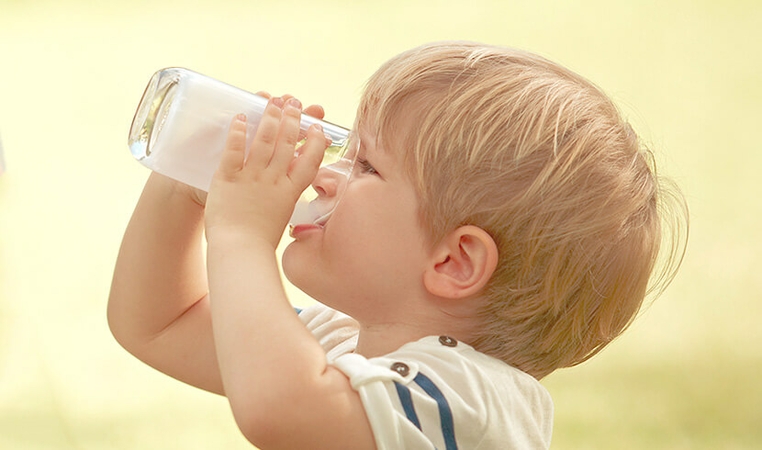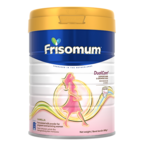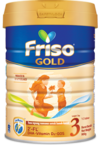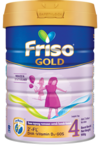Easy Digestion For Gentle Tummies
While it’s important to plan a well-rounded diet for your growing todd.... read more


Fibre-rich foods like grains, fruits and vegetables can make the digestive system strong. Toddlers aged one to three should aim for 19g of fibre per day, so pile on those apples, raspberries and whole-grain bread for your child.
Reference:
Institute of Medicine, Food and Nutrition Board. Dietary Reference Intakes for energy, carbohydrate, fibre, fat, protein and amino acids. Washington, DC: National Academy Press; 2002/2005.

Not only is exercise great for the overall well-being of your child, it is also a crucial aspect of digestive health. Keep the workout light and fun, but keep them active – this will encourage the movement of food through your child’s gastrointestinal tract and will help with digestion.

Especially true in our tropical climate where kids are more prone to perspiration and losing bodily fluids, hydration is key to keeping it all running smooth. To make that glass of water more enticing for your child, add fresh fruit like lemon or berries to give it more flavour. You may provide your child with milk formula / susu formula too to improve the digestive system for more strength inside.

Another popular tip for a good and strong digestive system is to have smaller meals more often throughout the day. This way, your child will be less likely to experience discomfort caused by bloating and will also be less likely to overload his digestive system with heavy portions of food.

Here’s another tip: Monitor your child’s eating habits and make sure he or she is not eating too fast and too much as a result. When eating out, portion food with serving plates, so your child doesn’t over-indulge in too-big servings that will make it more difficult for the digestive system to do its job.

Our bodies produce enzymes to help us break down food. These enzymes can also be found in our saliva, which is why you should always encourage thorough chewing to get all that stuff rolled up in enzymes. Other natural options can be found in food like papayas, mangoes, honey and pineapples.

Speaking of improving the digestive system, there are foods that your toddler should avoid. Processed food such as instant canned food or sweet snacks usually lack nutrients such as fibre and enzymes. They’re also loaded with trans-fats and other preservatives that are not beneficial to overall health when consumed on the regular. Try to load up on fruits and vegetables for your child instead – his digestive tract will thank you for it.

At the end of the day, children learn by example. So instead of just telling them how to improve their digestive system, demonstrate it to them and encourage them to follow. Eat as healthy as possible and make exercise a family activity – these great habits are just as beneficial for adults as they are for children. Moreover, this will also help you to bond with your child and also make wholesome, healthy living an integral aspect of your family life.
Now you may wonder, what happens after your child makes these dietary and lifestyle changes? Is there any way you can assess if your digestive system has improved and got stronger? Yes there are, and here are the five best ways to tell:
In simple terms, having regular bowel movements means that your child is pooping regularly. Why is this a sign of a good digestive system? It is because the digestive system is able to properly break down food and absorb their nutrients.
After following our tips for a good digestive system, your child may experience an improved appetite overall. This means that they will crave for food more than before, and will be more than happy to eat proper portions.
Food is like fuel for the body, and when the digestive system is strong and healthy, your child will naturally have better energy levels than before.
If you didn’t know, digestive problems may lead to weight loss due to poor absorption of food. Likewise, a healthy digestive system will promote healthy weight gain.
A poor digestive system can lead to constipation, and excessive bloating is one of the most common symptoms. Once your child’s digestive system improves, bloating becomes less common.
Speaking of food to avoid earlier, here are some food groups that you should introduce to your child for a stronger digestive system:
Fibre is directly responsible for a healthy bowel movement, and can be found in foods like beans, various berries, and whole grains.
Proteins are second on the list, and it comprises foods like lean meats, fish and seafood, and poultry.
If you didn’t know, some fruits contain more natural sugar content than others, such as apples and grapes. To improve your child’s digestive system, increase their intake of low-sugar fruits such as lemons and limes, avocado, and watermelon.
Try Friso® Gold Step 3 and Friso® Gold Step 4. Made with milk and processed only once with LocNutri™ Technology, Friso® Gold combines the magical goodness of nature with science to bring you easy to digest milk with more than 50 essential6 nutrients to help your child grow stronger from the inside. Friso® Gold now with NOVAS™ Signature Milk with naturally small molecules and soft structure, has no added sucrose or flavour for easy digestion so your child can be stronger inside. It is incredibly important for your child to have good digestion not only for their comfort but to also avoid complications in their future. You may request a sample: Try free 1-day trial pack or 50% off for 6 days-trial pack.
Friso® Gold 3 is for toddlers which are children between the ages 1 to 3 years old with Easy to Digest nutrients so they can be strong inside to experience life at its best and fullest with you.
DHA, AA, Omega 3&6 - To fuel learning growth. DHA is important for optimal visual and cognitive development1. AA is recognised for its key role for optimal health, cognition and development2. Omega 3 and 6 fatty acids are important for normal development of the brain, nervous system, sensory organs and intelligence3.
Calcium, Protein, Vitamin & Minerals - Muscle and bone growth. Calcium helps in the normal growth and development of bones and teeth. Protein is essential for your child’s growth, maintenance and repair for the body4. Vitamins and minerals are vital for growth and metabolism5.
GOS, Nucleotides & Bifido Lactis - Helps absorb key nutrients & build strong immune systems. GOS are prebiotics that can help with constipation and more6. Nucleotides can promote healthy gastrointestinal and immunological growth in young children7. Bifido Lactis is important for diarrhoea prevention as well as immune and gut maturation8.
Friso® Gold 4 is made for children above the age of 3 and contains the right choice of nutrition support through its milk powder which are:
DHA, AA, Omega 3&6 - To fuel learning growth. DHA is important for optimal visual and cognitive development1. AA is recognised for its key role for optimal health, cognition and development2. Omega 3 and 6 fatty acids are important for normal development of the brain, nervous system, sensory organs and intelligence3.
Calcium, Protein, Iron, Copper, Vitamin A and K1 - These nutrients give rapid growth of muscle and bone, as well as healthy vision to prepare the body for study as children of 4 years old begin their preschool education. Calcium helps in the normal growth and development of bones and teeth. Protein is essential for your child’s growth, maintenance and repair for the body4. When copper is combined with iron, it allows the body to build red blood cells as well as maintain healthy bones, blood vessels, nerves, and immune system9. Vitamin A enhances vision and immune functions10. Vitamin K1 helps make other proteins in the body that are important for blood, bone and kidney health and can be found in dark, leafy green vegetables11.
GOS, Nucleotides & Bifido Lactis - Helps absorb key nutrients & build strong immune systems. GOS are prebiotics that can help with constipation and more6. Nucleotides can promote healthy gastrointestinal and immunological growth in young children7. Bifido Lactis is important for diarrhoea prevention as well as immune and gut maturation8.


